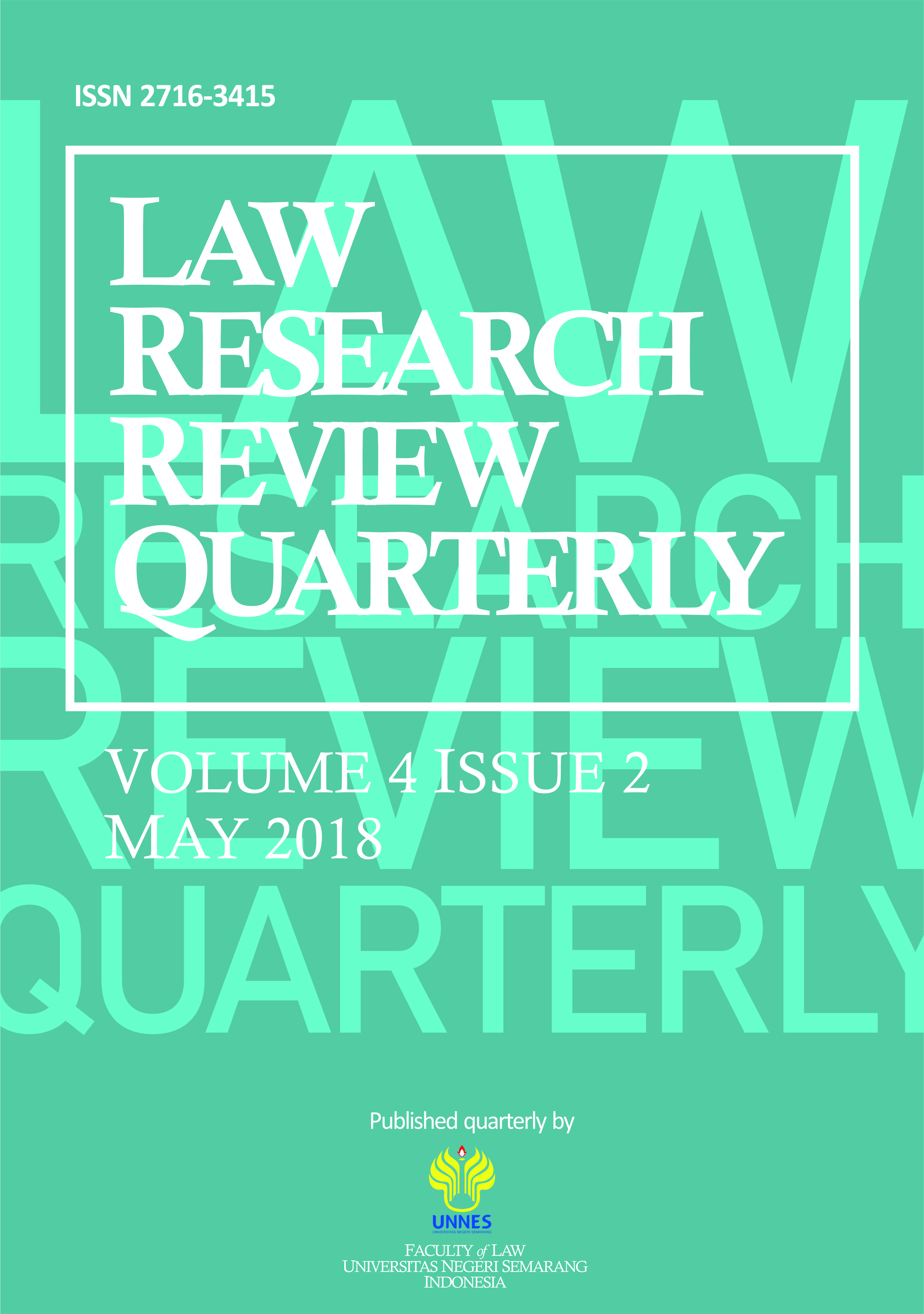Avoiding Election Crimes: Learning from Conflicts in the Election of Regional Heads and Deputy Regional Heads
Main Article Content
Abstract
One manifestation of a democratic state is the holding of general elections. Elections in Indonesia are used to elect the President and vice president, members of the DPR, DPD and DPRD, and Regional Heads. Since 2005, the people have been given the opportunity to elect their regional head leader directly. On one side this shows the state is trying to provide maximum opportunities for democracy to the people, but on the other hand the implementation of post-conflict local elections is not without obstacles, in addition to very expensive costs also its implementation is still prone to conflict, political manipulation, fraud, injustice, mobilization, money political, etc., up to many disputes over the results of the post-conflict local elections which lead to the Constitutional Court, even to the point of committing criminal offenses. The background of post-conflict local election conflicts is the existence of pairs of candidates for regent and deputy regent who do not accept the decisions issued by KPU, due to systematic, structured and massive violations committed by election participants, and KPU is not transparent in recapitulation of vote counting, unfair, dishonest, undemocratic, fraudulent, and unconstitutional.
Article Details
All writings published in this journal are personal views of the authors and do not represent the views of this journal and the author's affiliated institutions. Author(s) are retain the copyrights of the Article. However, before publishing, it is required to obtain written confirmation from Author(s) in order to ensure the originality (Author Statement of Originality). The statement is to be signed by at least one of the authors who have obtained the assent of the co-author(s) where applicable.This work licensed under a Creative Commons Attribution-ShareAlike 4.0 International (CC BY-SA 4.0)
References
Asfar Muhammad. (2006). Mendesain Managemen Pemilukada. Surabaya; Pustaka Eureka.
Duverger Maurice. (2000). Sosiologi Politik. Jakarta; Raja Grafindo Persada.
Gaffar Affan. (2006). Politik Indonesia Transisi Menuju Demokrasi. Yogyakarta; Pustaka Belajar.
Janedjri Gaffar M. (2012). Politik Hukum Pemilu. Jakarta; Konstitusi Press (Konpres).
Mahfud MD. (2011). Risalah Rekaman Konferensi Pers akhir tahun 2010 Membangun Demokrasi Substantif meneguhkan integritas konstitusi Mahkamah Konstitusi Republik Indonesia.
Ngabiyanto, et.al. (2006). Bunga Rampai Politik Dan Hukum. Semarang ; Rumah Indonesia.
Sunarto. (2012). Pendidikan Kewarganegaraan di Perguruan Tinggi, Semarang, Pusat pengembangan MKU/MKDK UNNES.
Wirawan. (2010). Konflik dan Manajemen Konflik Teori, Aplikasi, dan Penelitian. Jakarta; Salemba Humanika.
Jurnal
Khairul Fahmi. (2015). “Sistem Penanganan Tindak Pidana Pemiluâ€, Jurnal Konstitusi, volume 12 nomor 2, Juni.
Topo Santoso. (2011).“Problem Desain Penanganan dan Pelanggaran Pidana Pemiluâ€, Jurnal Perkumpulan Pemilu dan Demokrasi, Edisi 1.
The Indonesian Power for Democracy (TIM IPD).(2009). Evaluasi Kritis Penyelenggaraan Pemilukada di Indonesia, IPD Indonesia, Yogyakarta.
Veri Junaidi. (2011). “Sengketa Administrasi Pemiluâ€. Jurnal Perkumpulan Demokrasi dan Pemilu. Esisi 1.
Zuhro Siti. (2012). “Memahami Demokrasi Lokal : Pemilukada, Tantangan Dan Prospeknyaâ€. Jurnal Perkumpulan Pemilu dan Demokrasi, Edisi 4.
